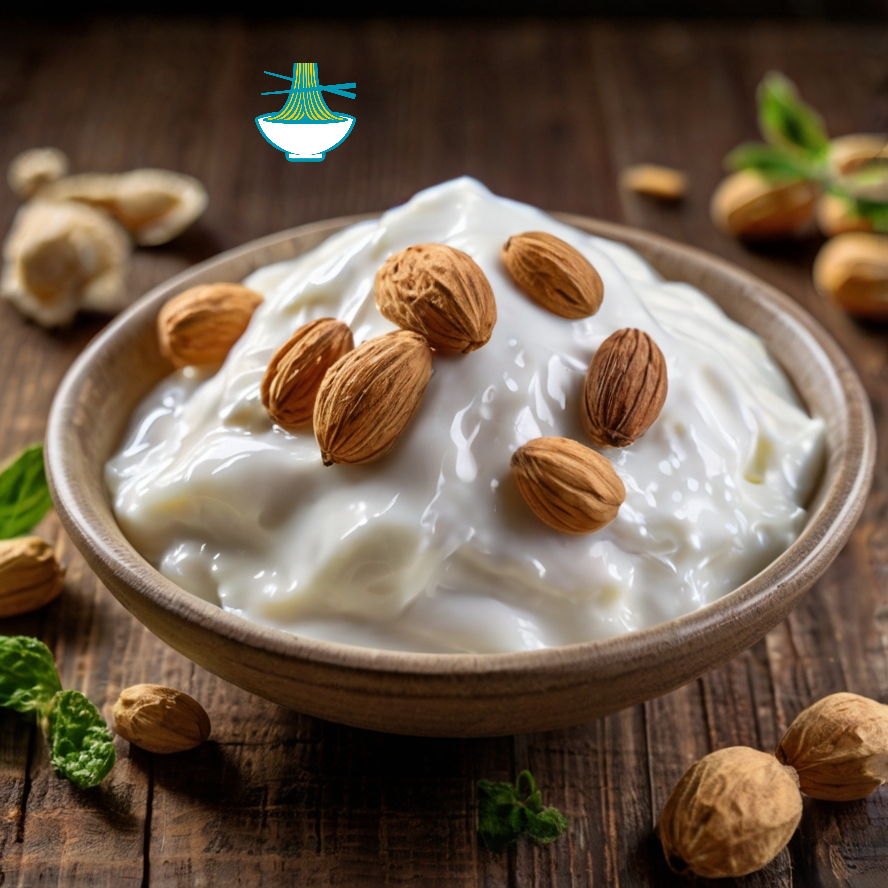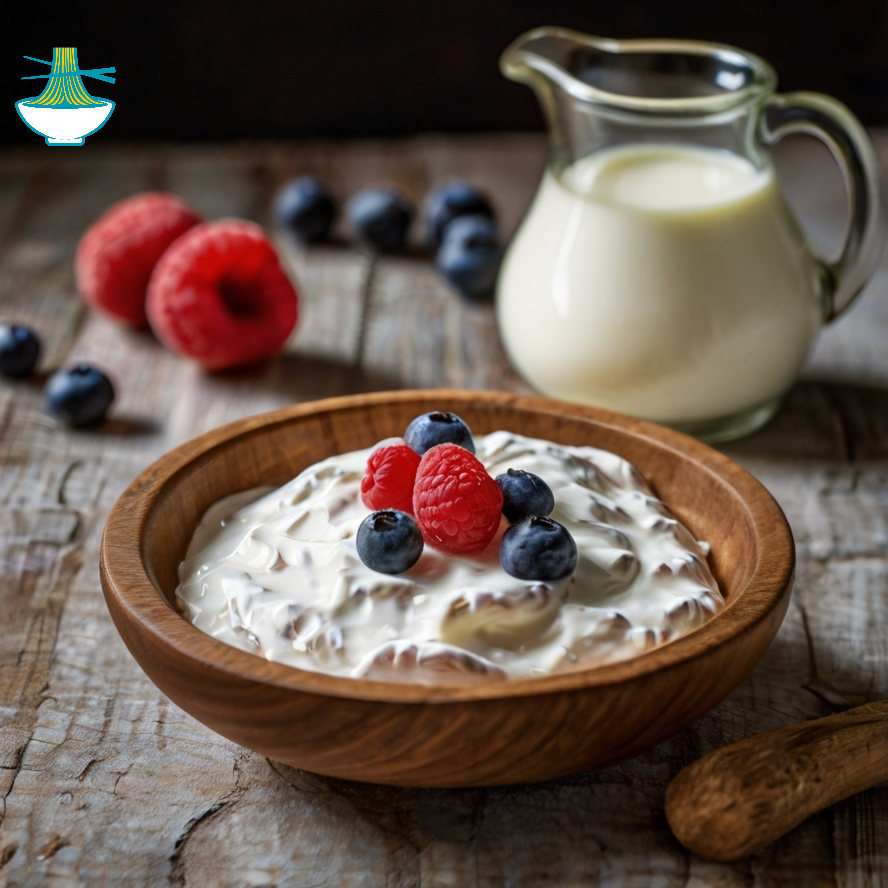Churtan, a traditional delicacy, encompasses the essence of yogurt in dried form, often rehydrated with water. Originating from regions with a rich dairy culture, this process preserves yogurt's tangy flavor while enhancing its portability and shelf life. Historically, nomadic communities relied on churtan for sustenance during extended journeys, appreciating its nutritional value and convenience. Today, churtan continues to be cherished, offering a versatile ingredient for various culinary applications and retaining its cultural significance across diverse cuisines.
Ingredients:
- Yogurt
Method:
1. Start by spreading a layer of yogurt onto a clean, flat surface.
2. Allow the yogurt to air dry completely until it becomes firm and brittle.
3. Once dried, break the yogurt into small pieces or grind it into a powder using a blender or food processor.
4. Store the dried yogurt in an airtight container until ready to use.
5. To reconstitute, simply mix the desired amount of dried yogurt with water until it reaches your desired consistency.
6. Use the reconstituted yogurt in recipes as needed, enjoying its tangy flavor and creamy texture.
Nutrition Value:
Yogurt:
- Calories: Approximately 100 calories per 1-cup (245g) serving.
- Carbohydrates: Around 11 grams per 1-cup serving, primarily from lactose, a natural sugar found in milk.
- Protein: Provides about 9 grams of protein per 1-cup serving, making it a good source of this macronutrient.
- Fat: Contains varying amounts of fat depending on the type (whole milk, low-fat, or non-fat). A 1-cup serving of whole milk yogurt typically contains around 5 grams of fat, with lower fat options having less.
- Sodium: Typically contains around 120-150 milligrams of sodium per 1-cup serving.
- Cholesterol: Contains around 30 milligrams of cholesterol per 1-cup serving.
- Vitamins: Rich in several vitamins, particularly vitamin B12, riboflavin (vitamin B2), and vitamin D (if fortified).
- Minerals: Good source of calcium, phosphorus, and potassium, essential for bone health, muscle function, and overall electrolyte balance.
- Nutritional Benefits: Yogurt is prized for its probiotic content, which consists of beneficial bacteria that support gut health and digestion. It also provides high-quality protein, calcium, and other essential nutrients, making it a nutritious addition to a balanced diet. Additionally, yogurt can contribute to satiety and weight management due to its protein content, and may also help regulate blood sugar levels and promote heart health.


Comments